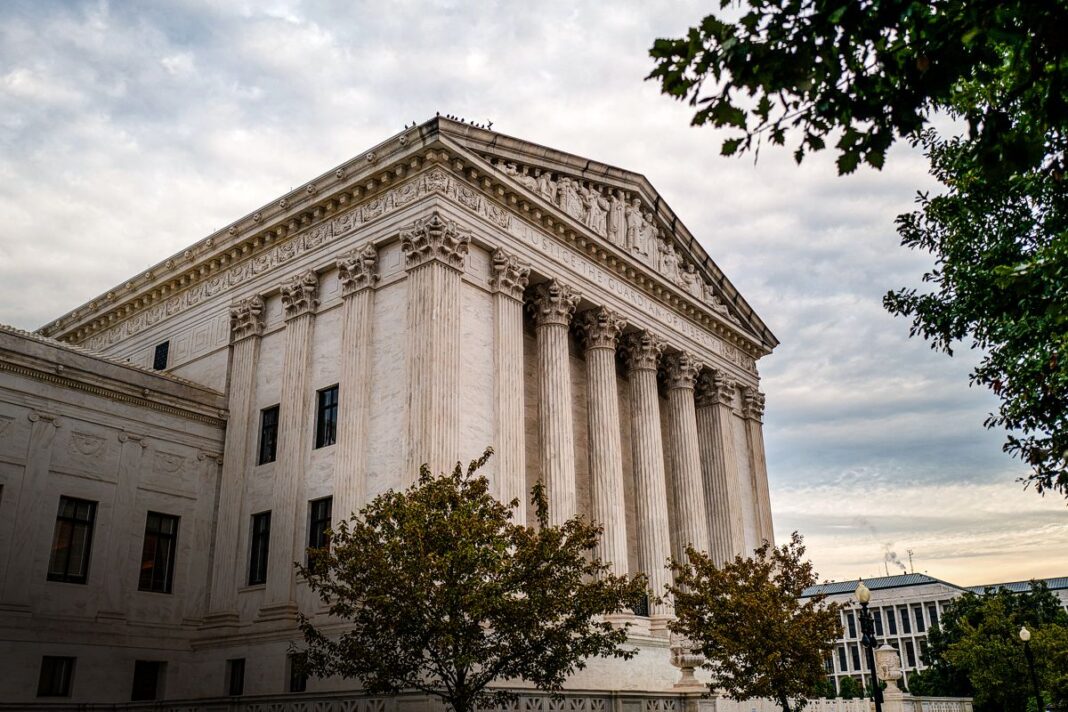A Colorado therapist is challenging a ban on so-called conversion therapy for minors, arguing that it restricts her First Amendment right to free speech.
The Supreme Court is scheduled to consider on Oct. 7 a free speech case involving a Colorado law that bans therapists from providing so-called conversion therapy to minors experiencing same-sex attraction or gender dysphoria.
A therapist challenging the law argues that it violates her First Amendment rights. On the other side of the debate, Colorado contends that it has the right to regulate mental health treatments for minors that it deems harmful and ineffective. It is among more than 20 states with such bans.
Colorado’s Prohibit Conversion Therapy for a Minor law, passed in 2019, prohibits licensed therapists from trying to “change an individual’s sexual orientation, including efforts to change behaviors or gender expressions, or to eliminate or reduce sexual or romantic attraction or feelings toward individuals of the same sex.”
Therapists who violate the law could be stripped of their licenses and face fines of up to $5,000.
Colorado has stated that its regulation was enacted in response to “overwhelming” scientific evidence that conversion therapy for minors is unsafe and not effective in the long term.
A practitioner of such therapy told The Epoch Times that the therapist’s work focuses on mending psychological wounds and is not coercive or harmful.
Opponents of conversion therapy, including the American Medical Association, point to practices such as electric shock and negative feedback methods such as smelling salts or chemically induced nausea to create a psychological aversion to the unwanted behaviors or attractions.
However, according to licensed counselor Christopher Doyle of the Institute for Healthy Families, modern therapists avoid these methods and instead favor exploring clients’ attitudes on sexuality, trauma, self-perception, and relationships.
The Case
In 2022, Colorado therapist Kaley Chiles, a Christian, sued to overturn the state’s minor conversion therapy law, saying that it violates her First Amendment right to free speech because it prevents her from speaking freely with clients.
“A practicing Christian, Chiles believes that people flourish when they live consistently with God’s design, including their biological sex,” Chiles’s petition states.
“Many of her clients seek her counsel precisely because they believe that their faith and their relationship with God establishes the foundation upon which to understand their identity and desires. But Colorado bans these consensual conversations based on the viewpoints they express.”
The state argued that it was appropriate for it to regulate professional conduct to protect patients. It also argued that the law is viewpoint-neutral and only prevents therapists from setting unrealistic goals or promising to change clients’ sexual identity or gender expression.
Colorado contends that the law doesn’t stop Chiles from engaging with her clients and notes that it contains exemptions for religious ministers.
Judge Gordon Gallagher of the U.S. District Court for the District of Colorado ruled against Chiles, saying the law was a permissible regulation of her conduct as a licensed therapist and that any burden on her speech was incidental. An appeals court upheld that ruling.
Jonathan Scruggs, senior counsel at the Alliance Defending Freedom, which represents Chiles, said that Colorado’s law has a “chilling” effect on therapists.
If the lower courts’ rulings are upheld, Scruggs said, the government could violate First Amendment protections simply by saying that it was regulating “conduct.”
“It could label the activity of lawyers as conduct. It could label [the activity of] advertising professionals as conduct, fundraisers [or] engaging in conversation as conduct. There really is no limiting principle here,” he told The Epoch Times.
Scruggs also pushed back on assertions that the regulation was viewpoint-neutral, noting that the law permits therapists to actively affirm same-sex attraction or transgender ideology in minors.








